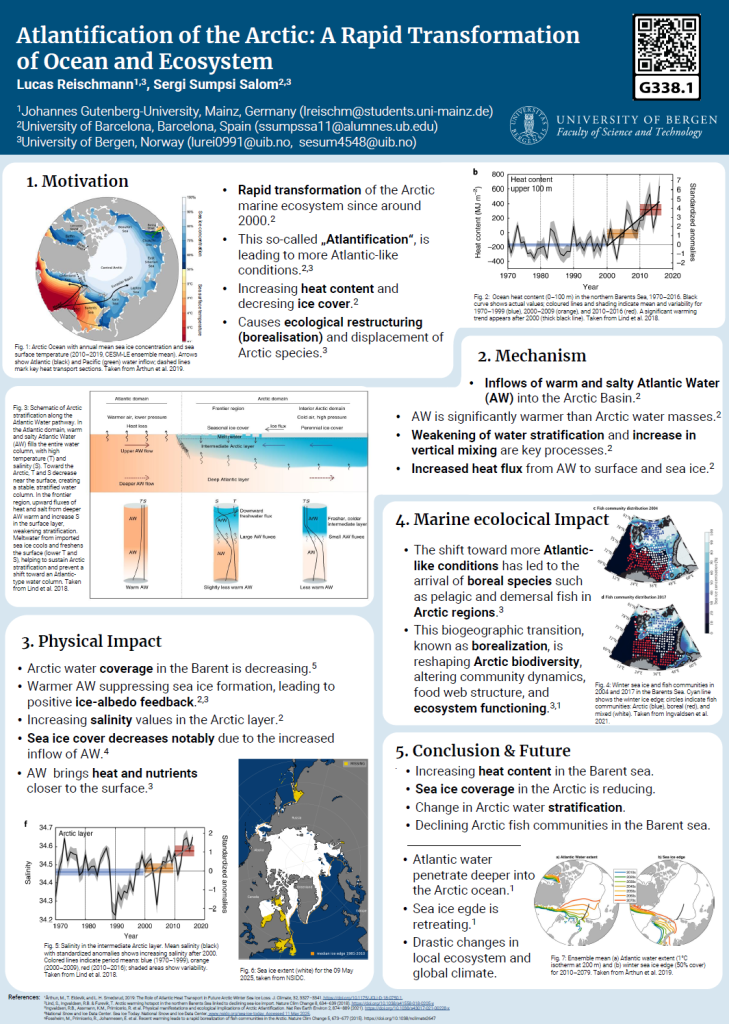Abstract
The Arctic is currently undergoing fundamental changes that are gradually dissolving its unique polar character. Significant features of global climate change in recent decades are the main reasons for sea-ice decline and the warming of the Arctic atmosphere and ocean. These changes have far-reaching climatological consequences. A central process of this upheaval is the so-called "Atlantification", characterized by the increasing inflow of warmer and saltier Atlantic Water (AW). Atlantification manifests physically as a weakening of the cold halocline layer and a shoaling (upward shift) of the AW layer, enhancing vertical mixing and the upward heat flux from the AW to the surface. This enhanced oceanic heat release has become a major contributor to the observed rapid loss of sea ice in the eastern Eurasian Basin.
The resulting reduction in winter sea ice formation is significant but this ongoing physical reorganization also drives profound ecological changes, often referred to as Borealization. Boreal species such as Atlantic cod, capelin, and herring are expanding northward, while Arctic species like polar cod are declining. The loss of sea ice habitat also impacts associated organisms, and a related shoaling of the nutricline increases nutrient availability in the upper ocean with possible consequences for primary production. Atlantification thus represents an essential step towards a new Arctic climate state with major implications for both physical climate feedbacks and the marine ecosystem structure.

